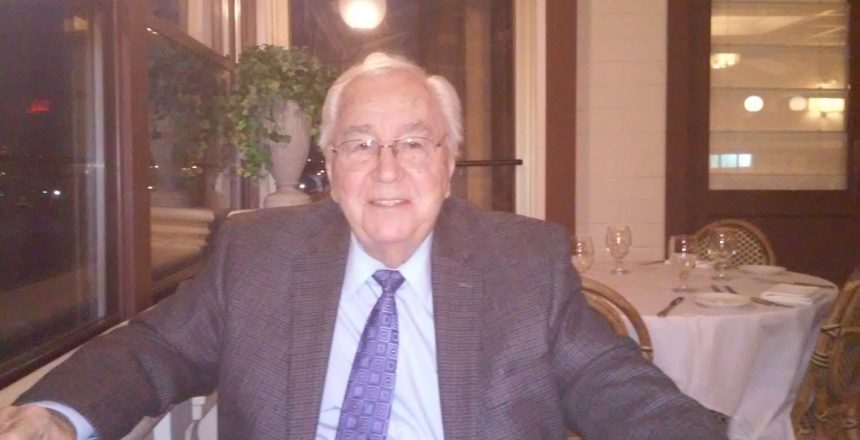Henry Ogonosky became concerned when he started to frequently feel out of breath. The then 79-year-old Bay Ridge resident was used to being active, visiting with his 27 grandkids and shaving a few strokes off his golf game.
The results of a cardiac stress test indicated Mr. Ogonosky needed an angiogram. This test checks for heart blockages caused by blood vessels that have narrowed or become entirely closed off. His primary care physician referred him to Dr. Robert Frankel, Director of Interventional Cardiology at the Maimonides Heart and Vascular Institute. The Centers for Medicare & Medicaid Services (CMS) rank Maimonides as the #1 hospital in the nation for successfully treating heart attacks.
“I felt like a long-term patient. They got me in right away,” Mr. Ogonosky says. “Everyone at Maimonides was really cordial. I can’t say enough about them. They were all great, from the person at the front desk to Dr. Frankel’s entire medical team.”
During the angiogram, Dr. Frankel inserted a catheter (flexible narrow tube) into the radial artery near the wrist and threaded it up to the heart. Through the catheter, he injected contrast dye into the blood vessels and took a series of X-ray images to look for signs of heart blockages. The test revealed three problem areas limiting blood flow to the heart.
Using a catheter, Dr. Frankel then performed a percutaneous coronary intervention, or PCI (angioplasty with stent). A balloon at the tip of the catheter is inflated to compress the buildup in the artery, pushing it flat against the walls of the blood vessel to restore blood flow. To provide permanent support, Dr. Frankel inserted stents (hollow, metal-mesh tubes) into the newly widened openings.
Dr. Frankel says, “The angiogram revealed that one of his coronary arteries was essentially completely closed. After discussion, it was decided to open up his artery with a balloon catheter and to insert a stent. The stent is similar to a spring to hold the artery open after the balloon catheter is removed. Henry had a fantastic result. His artery is now completely open.”
Fewer than half of U.S. hospitals offer PCI, a non-surgical alternative to coronary bypass surgery. Because incisions are tiny, recovery is faster and there are less risks involved than with traditional surgery. “I went home that afternoon. I was strong enough and I felt good,” recalls Mr. Ogonosky.
Thanks to this advanced procedure, Mr. Ogonosky is able to engage in normal activity and is not limited by chest pain. “Henry and his lovely wife maintain a home in upstate New York,” Dr. Frankel adds “He recently joked with me that he can now work around the house again and perform any other chores that Mrs. Ogonosky requires of him. It is extremely rewarding as a doctor to know that what we did prevented Henry from having a major heart attack and that he’s able to lead a full and productive life.”
Mr. Ogonosky credits his still-clean bill of health, seven years later, to Maimonides Medical Center and Dr. Frankel — who he calls his hero.



